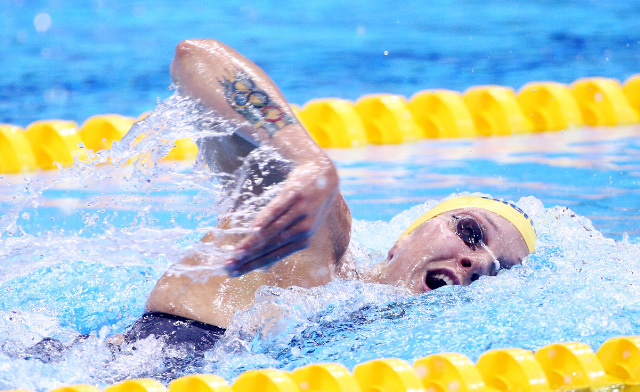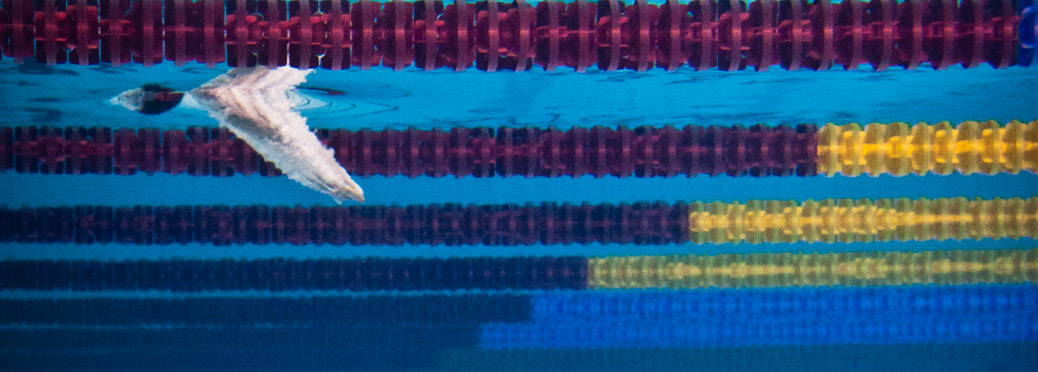In the first three rounds of the International Swimming League, the skins have been something of a highlight, the women’s events in particular. In Dallas last week we also saw the first signs of tactics being employed as London Roar moved away from simply putting in their two best 50m swimmers, switching out Bronte Campbell and Bruno Fratus for the more 100/200m focussed talents of Emma McKeon and Cameron McEvoy.
That ploy had some success with McKeon coming home second and Mcevoy fourth in their respective events, but what was potentially as interesting as the team tactics was what was happening between rounds, where the coaches could be seen deep in conversation with their swimmers, more so than we had seen in the first two rounds. Which led to the question:
Now could it be tactics? Once the swimmers are in, is there much that the coach can advise the swimmer to do? There were some suggestions along these lines:
Now that’s good advice for a skins competition which follows the “devil take the hindmost” narrative, but here the numbers go from 8 to 4 to 2 over just three rounds, so anything other than sprinting all out and thereby swimming tactically is unlikely to bear fruit.
The consensus then, was that the advice being imparted was more prosaic:
And that was about the size of it in terms of advice, but what else could the coaches and swimmers do to maximise their performance? One thing we have seen is a raft of physios working on the swimmers between rounds; in Naples, Ben Proud had about 3 pummelling him at once.
One elite sports physiologist pullbuoy spoke to was unequivocal that in the time frames available, such activity was going to have next to no physiological benefit, and that any gains would be from the placebo effect.
Which brings us to the mind. When a swimmer gets out of the water after a race, emotions can be running high for all kinds of reasons, so the interaction with the coach in that short moment before the next round could be crucial.
“Maintaining confidence, dealing with anxiety or anger and keeping focus are important for all coaches and swimmers between swims.” says Helen Davis, a chartered sports psychologist with Swim England and founder of Think Believe Perform. ” Whatever the outcome of the previous round, coaches will want to say something meaningful, pertinent and effective during the break.”

Many of the swimmers on the ISL teams are not with their own coaches so will not have had the chance to build rapport and to put in place rehearsed routines with them, but there are still things the coaches can say to help.
“Keep it simple” suggests Helen. “Reactions can only take a minute to get out of control, so a memorised keyword to conjure up an appropriate mindset, pre-planned between coach and swimmer, will remind the swimmer to stay in control – for example ‘ice’ for keeping cool under pressure or ‘explosion’ for speed off the blocks.”
“Even body language can be harnessed to project a positive frame of mind and elevate confidence. Your physiology is linked to your mental state, so for example, holding your head high keeps your brain alert. If your head and shoulders are slumped your brain chemistry changes for the worst. Coaches could encourage something simple, such as keeping eyes at the level of the flags at all times.”
Finally, like so much in elite sport it comes back to the process. The swimmers will likely be well versed in this, but in the maelstrom of the splash and dash it’s still important to focus on it. “I would encourage the swimmers to focus on three things only, things they can control about their next race.” suggests Helen. “A swimmer can’t control the outcome of the race, but can control the quality of technique, stroke rate or energy off the block for example. It sounds simplistic, but it will help in the middle of the skins, as swimmers are using their brains efficiently and not being overloaded with information.”
So there we have it. When we see the coaches and swimmers having a deep and meaningful on the deck in Budapest, its probably about focus and process, Or perhaps they are just talking about the weather.

